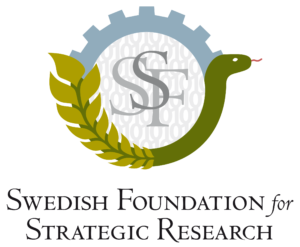About SciLifeLab Serve
SciLifeLab Serve (beta) is a platform for serving applications and machine learning models that is offered to life science researchers affiliated with a Swedish research institute and their collaborators. Currently, the service is running in beta testing mode. The service is available free of charge to researchers with and without an affiliation to SciLifeLab, to collaborators of these researchers, as well as to data-producing infrastructures in Sweden.
If you use SciLifeLab Serve for sharing apps and models that accompany your publications, presentations, etc., you can add the following acknowledgement text: “Technical infrastructure for hosting the [app ‘xxx’/model ‘xxx’] was provided by SciLifeLab Serve (https://serve.scilifelab.se), a platform developed and supported by SciLifeLab Data Centre.”
Infrastructure behind the service
SciLifeLab Serve is developed and maintained by the SciLifeLab Data Centre. Initially the service was based on STACKn, a platform developed by Scaleout systems (a spinoff from the Department of Information Technology at Uppsala University). Since then, the SciLifeLab Data Centre team has expanded and improved the platform. The most up-to-date source code behind SciLifeLab Serve is available with an open source license on GitHub. We welcome any other organisations running a similar service using our code.
The main SciLifeLab Serve application is built with Python on Django. SciLifeLab Serve components include a number of open source applications: JupyterLab (source code), RStudio Server (source code, modifications), code-server (VS Code, source code), ShinyProxy (source code), filebrowser (source code, modifications), TensorFlow Serving (source code), TorchServe (source code), MLflow (source code). We use Bootstrap and Bootstrap Icons for user interface styling, JavaScript libraries jQuery and aos for dynamic elements of the website.
SciLifeLab Serve as well as the applications and models deployed through the service are hosted on a Kubernetes cluster located and administered on hardware at the KTH Royal Institute of Technology in Stockholm and managed by the SciLifeLab Data Centre.
You can find information about the strategy and roadmap for the development of SciLifeLab Serve on the Roadmap page.
Organisations behind the service
SciLifeLab
SciLifeLab, Science for Life Laboratory, is an institution for the advancement of molecular biosciences in Sweden. We are funded as a national research infrastructure by the Swedish government. Our organization leverages the unique strengths of individual researchers across Sweden into a focused resource for the life science community. We provide access, via our infrastructure units, for thousands of researchers to the cutting-edge instrumentation and deep scientific expertise necessary to be internationally competitive in bioscience research. Our infrastructure is supported and developed by our research community, including internationally recognised experts in life science and technology. Our facilities and expertise create a unique environment for carrying out health and environmental research at the highest level.
SciLifeLab started out in 2010 as a joint effort between four universities: Karolinska Institutet, KTH Royal Institute of Technology, Stockholm University and Uppsala University. Today, we support research activities at all major Swedish universities.
SciLifeLab Data Centre
https://www.scilifelab.se/data/
SciLifeLab Data Centre is a central unit within SciLifeLab with responsibility for IT- and data management issues, serving the SciLifeLab and the Data Driven Life Science (DDLS) research program. SciLifeLab Data Centre coordinates and supports activities throughout the life cycle of data, from project planning, data production, data analysis, data sharing, to publishing and reuse of data, where researchers are dependent on advanced data analysis and e-infrastructures.
At SciLifeLab, we see data as one of the most valuable and long-lasting products of our operations and strive to make our data FAIR, handled according to open science standards and that its long-term value to the scientific community is maximized.
Funders
SciLifeLab Serve is funded by SciLifeLab, the Knut and Alice Wallenberg Foundation through the Data-Driven Life Science Programme (DDLS), as well as the Swedish Foundation for Strategic Research.


